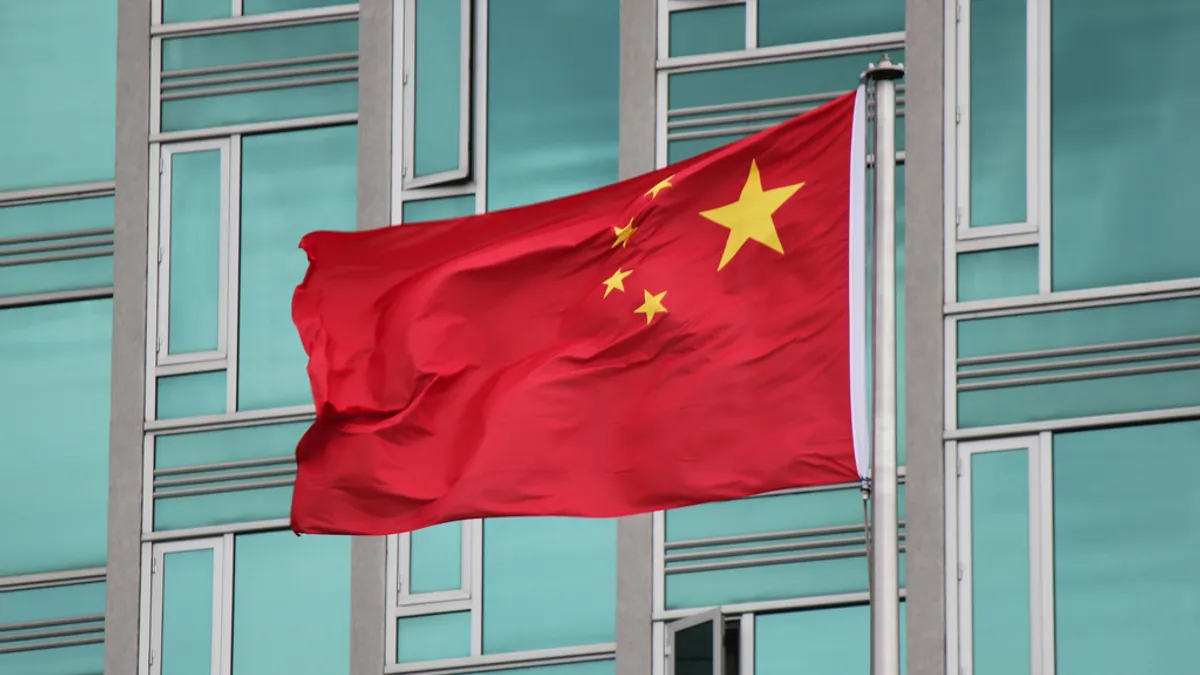This story has been updated with new information from ISRI and a more precise translation of the banned materials.
Dive Brief:
- China's Ministry of Ecology and Environment (MEE) has announced plans to formally ban the import of 32 scrap categories, as reported by Reuters. This ban will take effect for 16 categories by the end of 2018, and another 16 by end of the 2019.
- According to a statement from the Institute of Scrap Recycling Industries, and a translation published by Resource Recycling, the first round includes steel slag, post-industrial plastics (PE, PET, PS, PVC), compressed auto pieces, small electric motors and insulated wires, and vessels. The second round includes wood pellets, stainless steel scrap, and nonferrous scrap (excluding aluminum and copper) such as titanium and magnesium.
- ISRI estimates this will affect 676,000 metrics tons of material, worth approximately $278 million, for 2018. An additional 85,000 metrics, worth more than $117 million, will be affected in 2019.
Dive Insight:
This move isn't a total surprise, given China's stated goal of reducing scrap imports and improving domestic resource recovery capabilities. In broad terms, this is yet another sign China is getting serious about environmental quality and won't be backing down on trade.
During a recent press briefing, the MEE reportedly touted plans "to conscientiously enforce and strictly forbid foreign garbage from crossing the border" going forward. The government has already made multiple announcement about smuggling crackdowns and the seizure of illegal waste so far this year.
The abrupt nature of this policy has upended the economics around recycling from the European Union to Australia to the U.S. Solutions have varied, with some finding new markets in Southeast Asia or domestically, and others choosing to dispose of material while they search for alternatives. Many in the industry continue to hope that China may reverse course on its import ban, or at least its 0.5% contamination standard on material that is still accepted, at some point in the coming months or years.
Based on this new announcement — and the strained nature of trade relations between the U.S. and China over tariffs on materials such as plastics, aluminum, and now rubber — that is appearing less likely in the near term.















